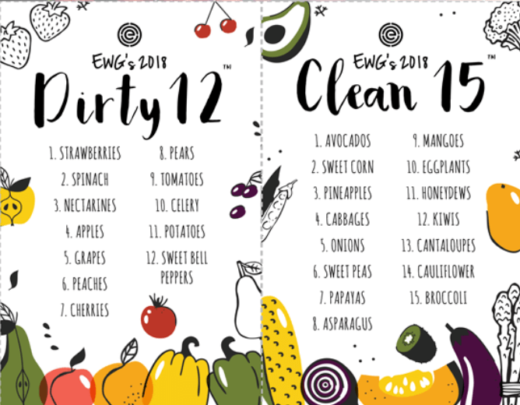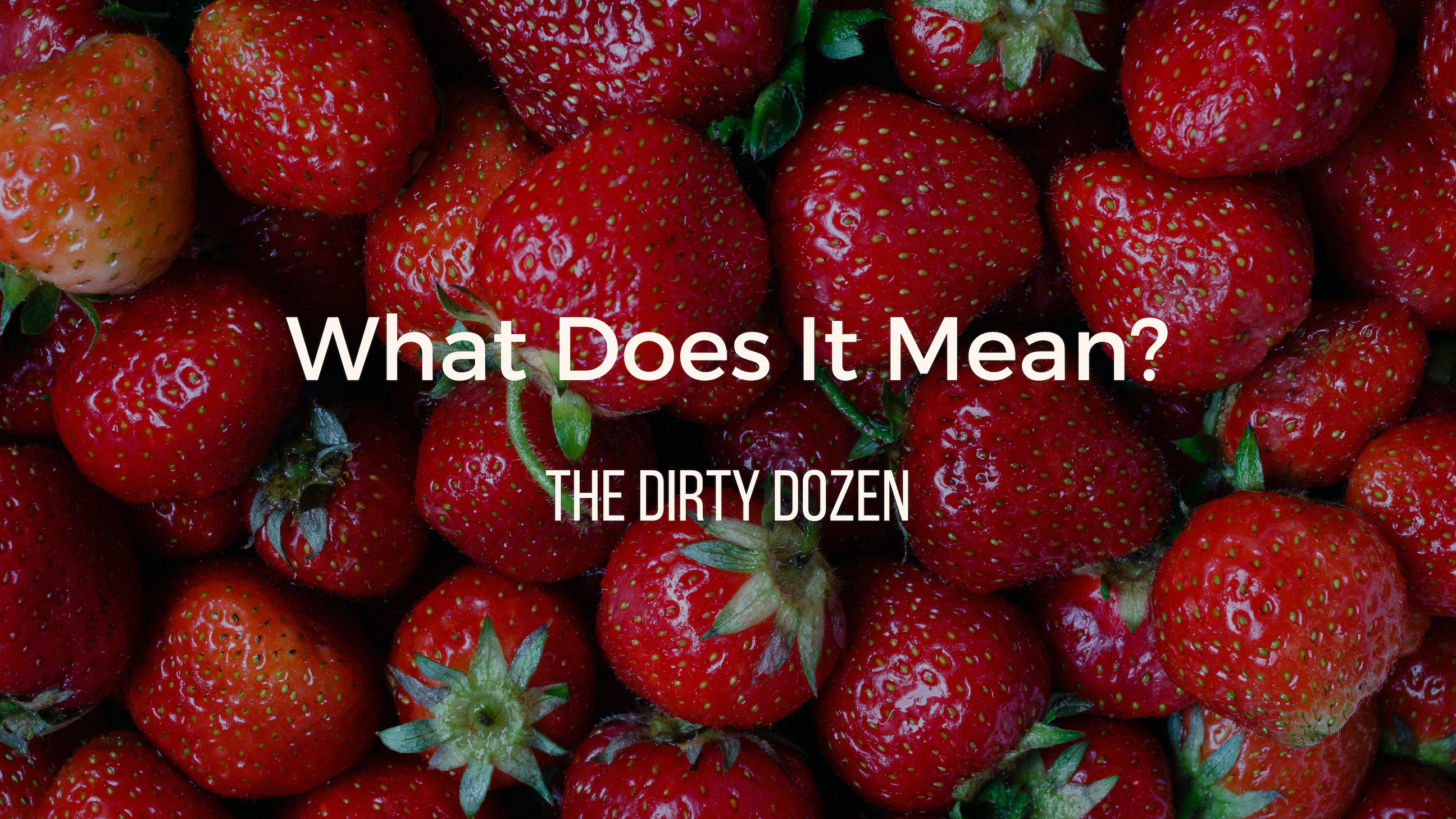Has the word “organic” become ambiguous for you by now? Because it certainly has for me. Organic has become a buzzword, with a large portion of items at the grocery store bearing this title, and it can be overwhelming. For many college students, or others grocery shopping on a tight budget, the word organic can have another important meaning: expensive. When deciding between two products that are essentially the same, but one has an organic label and an elevated price tag, I tend to choose the cheaper, non-organic version most of the time.
When it comes to produce, buying organic can mean avoiding pesticide residue, which can be important, but it is not necessary for all types of produce. The Environmental Working Group (EWG) is a non-profit environmental organization that works to educate consumers. They have a list, which is updated every year based on tests done by the USDA and FDA, that ranks pesticide contamination of 48 types of fruits and vegetables. For the top 15 foods with the least amount of pesticides (the “Clean 15”), it is not necessary to buy organic. For the bottom 12 foods with the most pesticides (the “Dirty Dozen”), it is better to buy organic if possible.

These lists are great to have while grocery shopping so you know when to think about buying organic, or when it is ok to buy conventional. However, according to the USDA’s report, 99.5% of produce samples tested had pesticide residues “well below” the EPA’s permitted levels, and 22% of the samples had no detectable residue at all.
Go green with Dining Team Green! Want more information on sustainability in dining? Follow us on Facebook, Instagram, and Twitter @ursustainibble. Contact us at urdiningteamgreen@gmail.com. We’d love to hear from you!
Guest Post Written by Nicole Franki, Class of 2020, Dining Team Green Sustainability Intern


Thanks for your question, Shaylee. You can have soil samples tested by your local cooperative extension for pH and nutrient levels. For heavy metals and other comprehensive testing you may have to dig a little deeper. Check out http://npic.orst.edu/envir/testing.html for more information.
I didn’t realize that buying organic is a way to avoid pesticide residue. My father owns some farm land and grows on it. Is there a way to have the produce tested to make sure there isn’t any pesticide residue on it?
Do you know if dandelion greens are one of the clean veggies ?